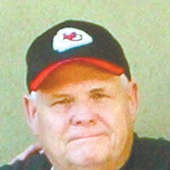By any other name
The title of this story is taken from a line spoken by Juliet, in William Shakespeare's classic play, "Romeo and Juliet." Last Saturday, the literary world paused to honor perhaps the greatest writer in human history, on the 400th anniversary of his passing. Many of you likely do not consider yourselves fans of the great "bard." It might surprise you, as to just how much you use his words in your everyday life.
Let's take just a moment to consider the title of this story, and how it translates to our shared human connection. Romeo and Juliet are perhaps the most famous lovers of all time. They are young teens who come from families that were mortal enemies.
When they fall in love against the odds, Juliet put their love into perspective, with these simple words, "A rose by any other name would smell as sweet." For Romeo and Juliet love transcended the animosity between their families.
That simple plot and story has been repeated countless times since. "West Side Story," is a great example, and just as in Shakespeare's play, tragedy befalls the young lovers.
When I was in high school we were required to read quite a bit of the great writer's works. At the time, I found it a bit tedious. The 'Old English' wording in Shakespeare's text, had a lot to do with my reluctance. Despite the strange wording, his stories and plots, have never been equaled, by any other writer.
Here are just a few Shakespeare phrases that we all will find familiar: "Good riddance;" "Break the ice;" "Wild goose chase;" "Love is blind;" 'Brave new world;" "Naked truth;" "Green eyed monster;" "Bated breath;" "fight fire with fire;" and "laughing stock."
My own very personal interest in Shakespeare was honed during my college days. I had to take college speech as one of my basic curriculum requirements. The main class had almost 300 students. The professor only held class about once every two weeks. The rest of the time, we were split into smaller groups that met Monday, Wednesday, and Friday. Each of these small group sections was taught by a graduate assistant.
My section had this grad assistant, who was a look alike to Tom Selleck. He was a theater major, a play director, and he acted the lead in a couple of the plays on campus.
After I gave one of my required speeches (we had to complete 10 during the semester, on a variety of topics and styles), he approached me with a question and an offer.
He asked me if I had ever acted in any of my high school plays. I told him I had once written and was a member in a skit that we performed at the Anti-Van Follies. Other than that, I had no experience to offer.
He told me he was directing a famous Shakespeare comedy, "The Merry Wives of Windsor," to be performed during the spring semester. He told me that my voice, rotund build, and red hair, would be a perfect fit for the play's comic character, "Sir John Falstaff!"
I was a bit miffed, about the physical comparisons he insinuated in his assessment of me, but when he told me the play was going to go on the road for performances at several other colleges and universities, he had me "hooked."
When we began rehearsals, he told us about the background and history of the play. Falstaff was a character that had appeared in other Shakespeare plays such as Henry IV parts 1 and 2.
It was commonly held knowledge, that Queen Elizabeth I was a great fan of Shakespeare. It was also reputed, that the Queen had asked Shakespeare to include her favorite character Falstaff, in a less dramatic production, such as a comedy. Whether that is true or not, "The Merry Wives of Windsor," remains one of the best comedy tales of all time.
Having never been in a real play before, I had to spend a lot of time learning all my lines. Once that was finished, we began "blocking" and rehearsing the scenes.
My two most vivid memories of that process included the "slapstick," episodes, and the timing pauses. In one particular scene, Falstaff is forced to hide in a laundry bag, so as not to be discovered by the jealous husband of Mistress Ford. Master Ford, in our version, was luckily a diminutive actor. When he jumped up and down on the bag with me inside (in the play he does not know Falstaff is within), I was very pleased, that he was not heavy. That scene always garnered lots of laughter every time we performed it.
The laughter was what made all of us actors so keenly aware of the timing in the scenes. Comedy is considered the toughest of all acting work. Comedic scenes need time for the audience to react and laugh. The actual length of those pauses varied from night to night, and audience-to-audience.
We performed our comedy at eight colleges in four states that spring. It was my one and only time to work as an actor, and it was not surprising that no one from Hollywood ever called me to come out and become a star!
What did happen was that my acting in a Shakespeare play, whetted my appetite, to read and enjoy more of the great man's works. I still am not a great fan of his darker tragedies, but their plots are the basis for much of what we still discover in books, movies, plays, and television shows.
I will close with a few more lines by the great writer. Here we see that he contends, that we were all connected through the arts. In a sense, we are performing our own play, our own story, in our individual daily lives.
"All the world's a stage,
And all the men and women merely players;
They have their exits and their entrances..."

